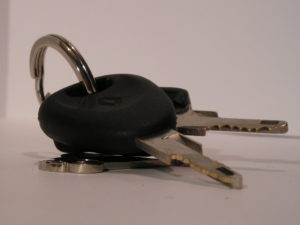Vehicle Forfeiture in Virginia After A Felony DUI
January 28, 2017 by Jean Humbrecht
Vehicle forfeiture in Virginia is one of the many penalties associated with a felony DUI conviction. After a driver is arrested for a felony DUI, the car that he drove during the commission of the offense is subject to seizure and forfeiture. The vehicle must be solely owned by the driver in order to be seized and forfeited.
Procedures Required for Vehicle Forfeiture in Virginia After Felony DUI Arrest
The Commonwealth can file paperwork for seizure of a vehicle in Virginia after a driver is arrested for a felony DUI. This is called an information and is filed in the circuit court clerk’s office. The Commonwealth can file the information in the jurisdiction where the vehicle is located, the jurisdiction where the property was seized, or the jurisdiction where the driver can be prosecuted for the conduct that gave rise to the forfeiture. The information must be filed within three years of discovering the act forming the basis for the seizure and forfeiture.
In the information, the Commonwealth must:

- name as defendants all owners or lienholders of the vehicle
- specifically describe the property
- set forth the grounds for the forfeiture
- ask that the property be condemned and sold or disposed of, and
- ask that all persons concerned or interested be notified to appear and show cause why such property should not be forfeited
The Commonwealth must notify the DMV that an information has been filed for vehicle seizure in Virginia. The DMV will then notify the defendant and any lienholder of the vehicle.
The seizure of the vehicle will be stayed, or delayed, until after conviction and appeal periods have passed. After all appeals have been exhausted, the Commonwealth can move forward with the vehicle forfeiture.
What Charges Will Result in Vehicle Forfeiture in Virginia?
Seizure and vehicle forfeiture in Virginia can occur after a driver has been arrested for:
- DUI third offense (Va. Code §18.2-266, Va. Code §18.2-270 (C)(1))
- DUI fourth or subsequent offense (Va. Code §18.2-266, Va. Code §18.2-270(C)(3))
- DUI Maiming (Va. Code §18.2-51.4)
- DUI Involuntary Manslaughter (Va. Code §18.2-36.1)
- Any DUI if the offender has previously been convicted of:
- DUI Maiming (Va. Code §18.2-51.4)
- DUI Involuntary Manslaughter (Va. Code §18.2-36.1)
- Operating a Watercraft Under the Influence, Maiming (Va. Code §18.2-51.5)
- Operating a Watercraft Under the Influence, Involuntary Manslaughter (Va. Code §18.2-36.2)
What Happens if the Owner Sells the Car to Avoid Vehicle Forfeiture in Virginia After a Felony DUI?
If the vehicle was sold after the driver was arrested (but before seizure) in order to avoid the seizure and vehicle forfeiture in Virginia, the Commonwealth can recover the proceeds from the sale of the vehicle (Va. Code §19.2-386.34).
Is it Possible to Stop Vehicle Forfeiture in Virginia After a Felony DUI Arrest?
An immediate family member of the owner of a vehicle being seized and forfeited can petition the court for release of the vehicle (Va. Code §19.2-386.34). The judge has discretion to release the vehicle if the immediate family member can prove by a preponderance of the evidence that the immediate family has only one vehicle and will suffer substantial hardship if the vehicle is seized and forfeited (Va. Code §19.2-386.34).
Vehicle Forfeiture in Virginia: Statute
§19.2-386.34. Forfeiture of vehicle used in a felony violation of § 18.2-266.
***DISCLAIMER: THE MATERIAL AND INFORMATION CONTAINED IN THIS POST, ON ANY PAGES ON THIS WEBSITE, AND ON ANY PAGES LINKED FROM THESE PAGES, ARE FOR GENERAL INFORMATION ONLY AND NOT LEGAL ADVICE. YOU SHOULD CONSULT A LICENSED ATTORNEY IN YOUR JURISDICTION BEFORE RELYING ON ANY OF THE INFORMATION CONTAINED ON THESE PAGES. SENDING EMAIL TO OR VIEWING INFORMATION FROM THIS WEBSITE DOES NOT CREATE AN ATTORNEY-CLIENT RELATIONSHIP***





